Are you one of the millions of people who struggle with respiratory concerns? New research on omega-3 for asthma suggests this natural remedy may make a huge difference.
Asthma is a common disease, affecting around one of out every 12 people. Overall, asthma costs the United States alone around $56 billion a year in medical costs, lost work productivity and other expenses. While modern medicine offers a variety of treatments for this and other inflammatory respiratory conditions, there are few ways to actually prevent it. However, new research on omega-3 for asthma suggests that in addition to the myriad of other health benefits this fatty acid provides, taking in sufficient amounts could be effective as a treatment for this devastating health concern.
What Causes Asthma?
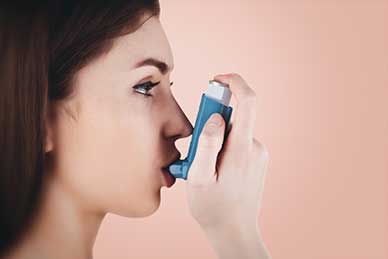 People with asthma have chronic inflammation and narrowing of their airways that interferes with their breathing on a daily basis. In addition, this inflammation and narrowing can lead to asthma attacks, which is when the muscles that make up airways narrow and can even prevent breathing. People with asthma also tend to have mucus build up in airways from the inflammation, which can further compromise breathing. Over time, the airway inflammation can lead to permanent damage to the airways and chronic obstruction.
People with asthma have chronic inflammation and narrowing of their airways that interferes with their breathing on a daily basis. In addition, this inflammation and narrowing can lead to asthma attacks, which is when the muscles that make up airways narrow and can even prevent breathing. People with asthma also tend to have mucus build up in airways from the inflammation, which can further compromise breathing. Over time, the airway inflammation can lead to permanent damage to the airways and chronic obstruction.
Modern medicine offers a variety of treatments that can reduce and slow the damage caused by asthma. Beta-agonists such as albuterol can immediately open airways that are constricted by tight muscles. Steroids such as cortisol and prednisone are also used because they reduce inflammation. However, many people still suffer—and sometimes die—from asthma every year, even in developed countries with excellent medical care. Many people have begun trying alternative remedies in addition to traditional medicines as a way to breathe a little easier.
Asthma and the Circadian Rhythm
Research on the circadian rhythm of asthma has offered a great deal of promise for people looking to overcome this condition. Our respiratory tracts have a distinctive circadian rhythm. People who have a dysregulated circadian rhythm, such as those with insomnia, are more likely to develop asthma. In addition, they are more likely to have severe asthma instead of a milder form. While most people think of asthma as a childhood disease, these findings indicate that adults who do not sleep well are also at risk.
How can sleep affect asthma? First, sleep affects the immune system. People who do not get enough high-quality sleep are likely to suffer from dysfunction of the immune system, which can lead to an autoimmune attack on airways. Second, our respiratory systems, and thus conditions affecting these systems, follow a circadian rhythm. Timing daily medications to coincide with the times when asthma sufferers are most at risk for an attack may be beneficial.
Omega-3 for Asthma: A New Treatment Option
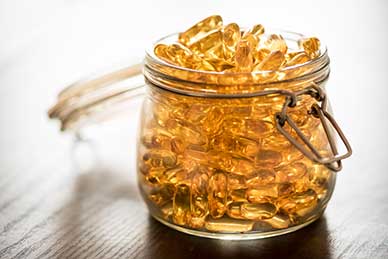 There are several natural supplements that also may be beneficial for people who suffer from asthma and other respiratory concerns. Omega-3 fatty acids are currently the supplements with the most evidence backing them. Research on omega-3 for asthma suggests that these fatty acids have a regulatory effect on B cells, the type of immune cell that governs IgE reactions such as asthma attacks. People who are suffering from regular asthma attacks may see the frequency and severity lessened if they get more omega-3 fatty acids, either from diet or from a supplement.
There are several natural supplements that also may be beneficial for people who suffer from asthma and other respiratory concerns. Omega-3 fatty acids are currently the supplements with the most evidence backing them. Research on omega-3 for asthma suggests that these fatty acids have a regulatory effect on B cells, the type of immune cell that governs IgE reactions such as asthma attacks. People who are suffering from regular asthma attacks may see the frequency and severity lessened if they get more omega-3 fatty acids, either from diet or from a supplement.
Women who are pregnant may even be able to lower the chances of their offspring having asthma by taking one of these supplements. A recent study found that women who took 2.4 mg of omega-3 fatty acids in their third trimester of pregnancy were almost a third less likely to have babies who grew up to have asthma. Supplementing with omega-3 fatty acids when pregnant may not only remove the burden of chronic disease from many children, but also remove a large burden from our economy in which asthma and other respiratory conditions are an expensive problem.
Getting Enough Omega-3s in Your Diet
This new research on using omega-3 for asthma is promising, but still in the preliminary stages. However, there are plenty of reasons to ensure that you ingest plenty of these fatty acids. They are available not just in supplements but in a variety of foods including:
- pasture-raised or grass-fed meats
- free-range poultry and their eggs
- fresh soy foods such as edamame
- wild rice
- walnuts and walnut oil
- flaxseeds and flaxseed oil
- certain legumes such as black beans and kidney beans
- fatty fish such as bluefin tuna and salmon
Because the Western diet tends to be low in or even completely devoid of these foods, many experts suggest taking an omega-3 supplement to ensure that you get all the benefits of these nutrient-rich oils.
If you have not been getting enough omega-3 fatty acids in your diet, there has never been a better time to start. New research on the benefits of omega-3 fatty acids for asthma as well as a variety of other health disorders suggests that everyone should be getting plenty of these oils in their daily diet.
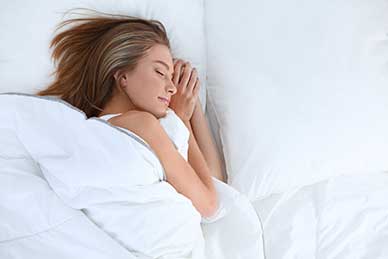 Many people notice that they are more likely to get sick when they are overworked or simply worn out. Scientific research supports this observation. Studies of twins have found that even among identical twins, the
Many people notice that they are more likely to get sick when they are overworked or simply worn out. Scientific research supports this observation. Studies of twins have found that even among identical twins, the  One final area that modern research suggests may be impacted by sleep is sexuality. In a study of almost 100,000 pre-menopausal and menopausal women, researchers found a
One final area that modern research suggests may be impacted by sleep is sexuality. In a study of almost 100,000 pre-menopausal and menopausal women, researchers found a  The light pollution from these lights can cause problems that we do not even realize. We may feel tired but be unable to sleep simply because we are bathed in light. Studies have linked Christmas lights to
The light pollution from these lights can cause problems that we do not even realize. We may feel tired but be unable to sleep simply because we are bathed in light. Studies have linked Christmas lights to 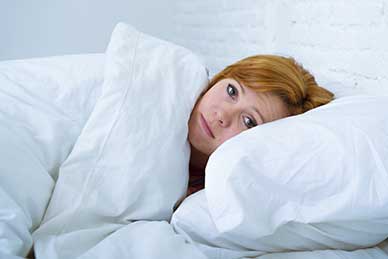 The holiday season may be too well-lit, but this does not mean you have to go without sleep until Santa has come and gone. Experts suggest that you turn off Christmas lights as well as other lights a half-hour before you go to bed to allow your body to produce enough melatonin to support good sleep. If your neighbors and community have lights near your home that may interfere with sleep, consider using blackout curtains or other means of blocking light. Last, if you still struggle to get the sleep you need,
The holiday season may be too well-lit, but this does not mean you have to go without sleep until Santa has come and gone. Experts suggest that you turn off Christmas lights as well as other lights a half-hour before you go to bed to allow your body to produce enough melatonin to support good sleep. If your neighbors and community have lights near your home that may interfere with sleep, consider using blackout curtains or other means of blocking light. Last, if you still struggle to get the sleep you need,  Determining whether you are low on tryptophan is not as simple as getting a blood test. Low levels of tryptophan are not the only reason you may suffer the effects of a deficiency. Some people do not use this amino acid as efficiently as others, while some have higher tryptophan needs that the recommended daily allowance simply doesn’t accommodate. These people may eat plenty of tryptophan-rich foods even while at the same time suffering from a functional deficiency.
Determining whether you are low on tryptophan is not as simple as getting a blood test. Low levels of tryptophan are not the only reason you may suffer the effects of a deficiency. Some people do not use this amino acid as efficiently as others, while some have higher tryptophan needs that the recommended daily allowance simply doesn’t accommodate. These people may eat plenty of tryptophan-rich foods even while at the same time suffering from a functional deficiency.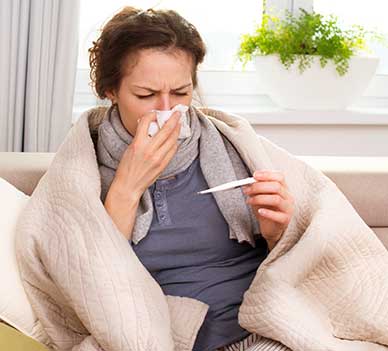 There are yet other ways that the circadian clock and the immune system are linked. The immune system revs up production of immune cells at certain times of day in
There are yet other ways that the circadian clock and the immune system are linked. The immune system revs up production of immune cells at certain times of day in 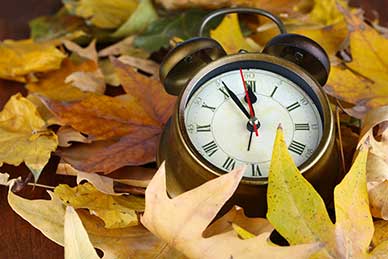 The tradition of turning the clocks back in the fall and forward in the spring
The tradition of turning the clocks back in the fall and forward in the spring